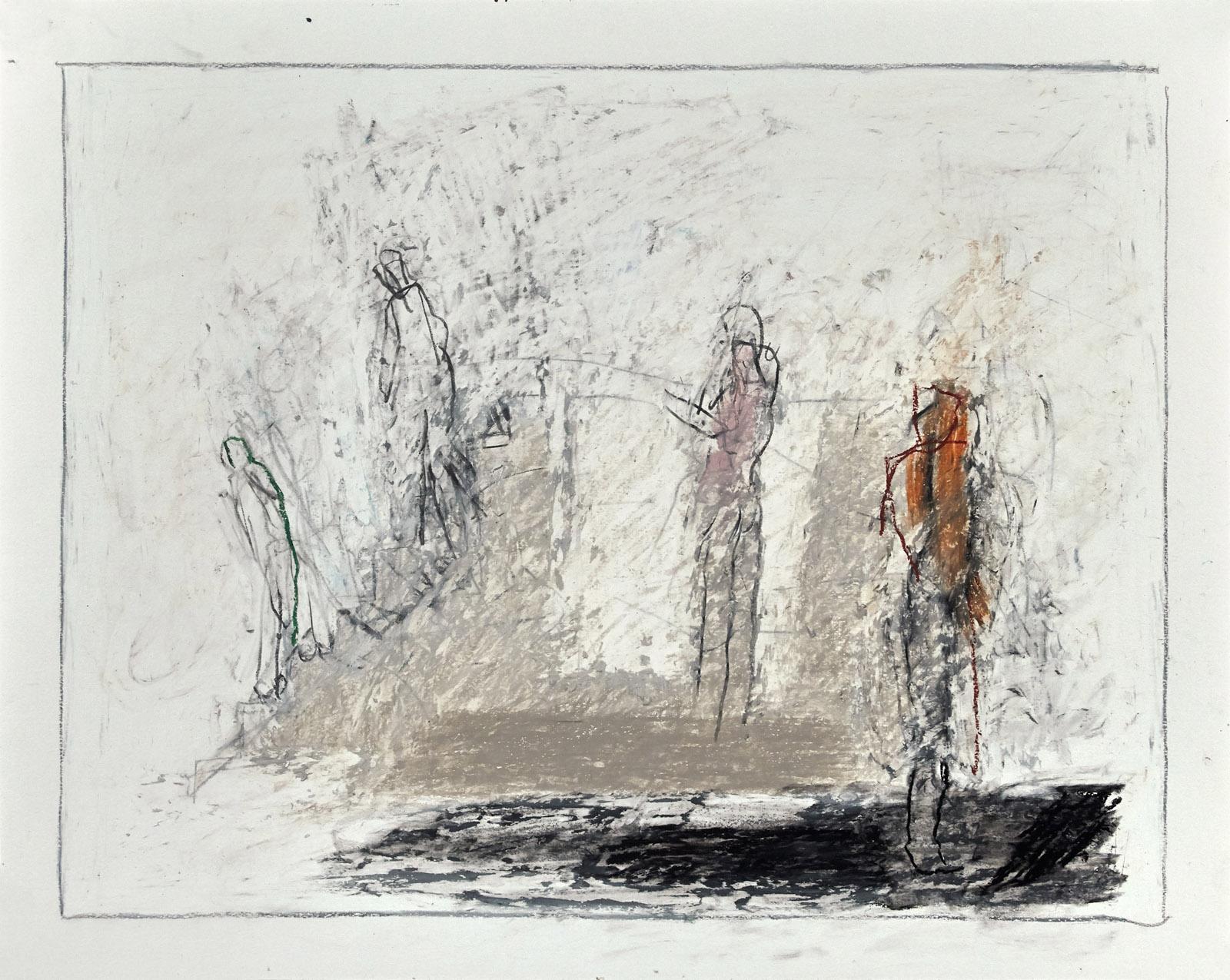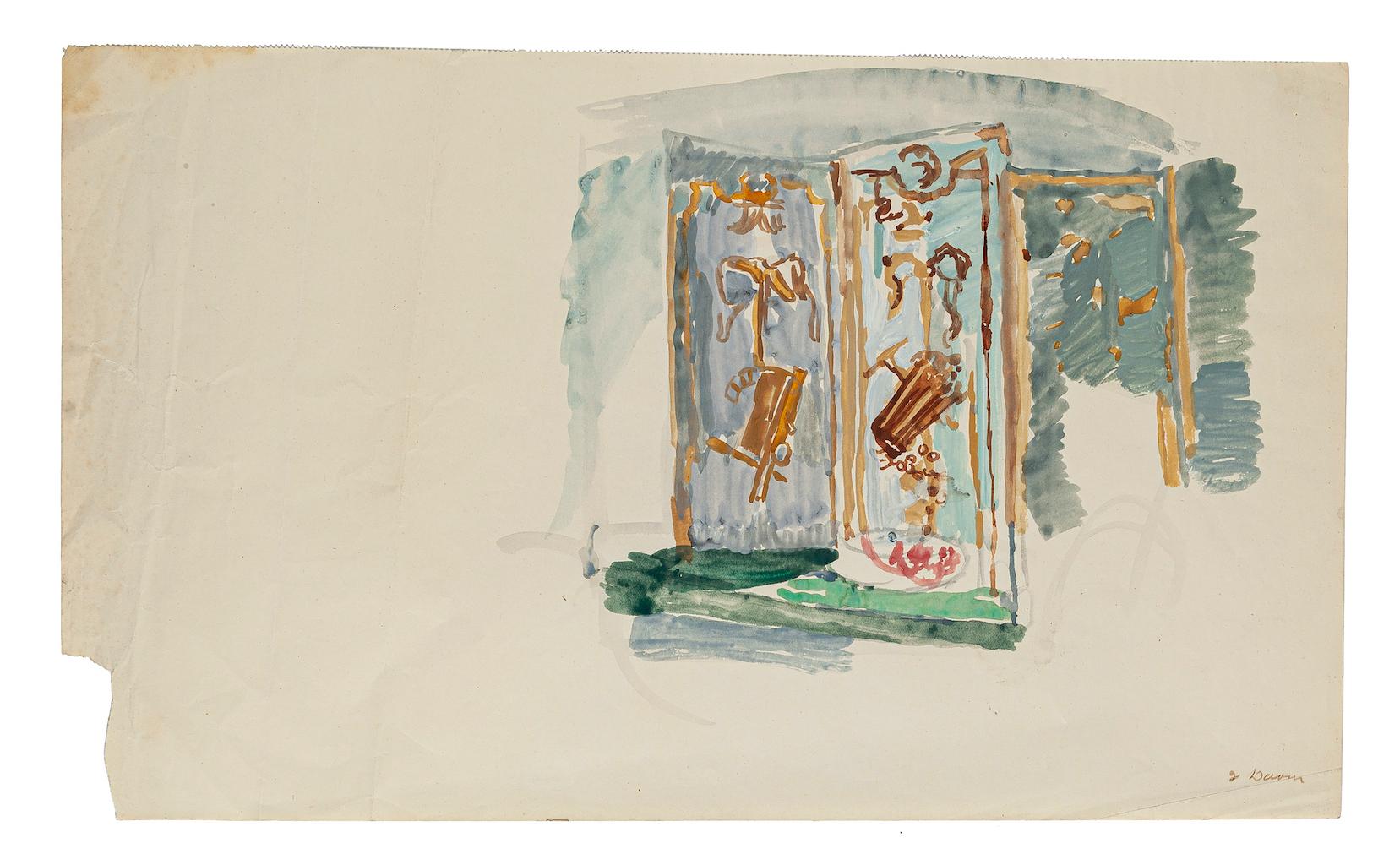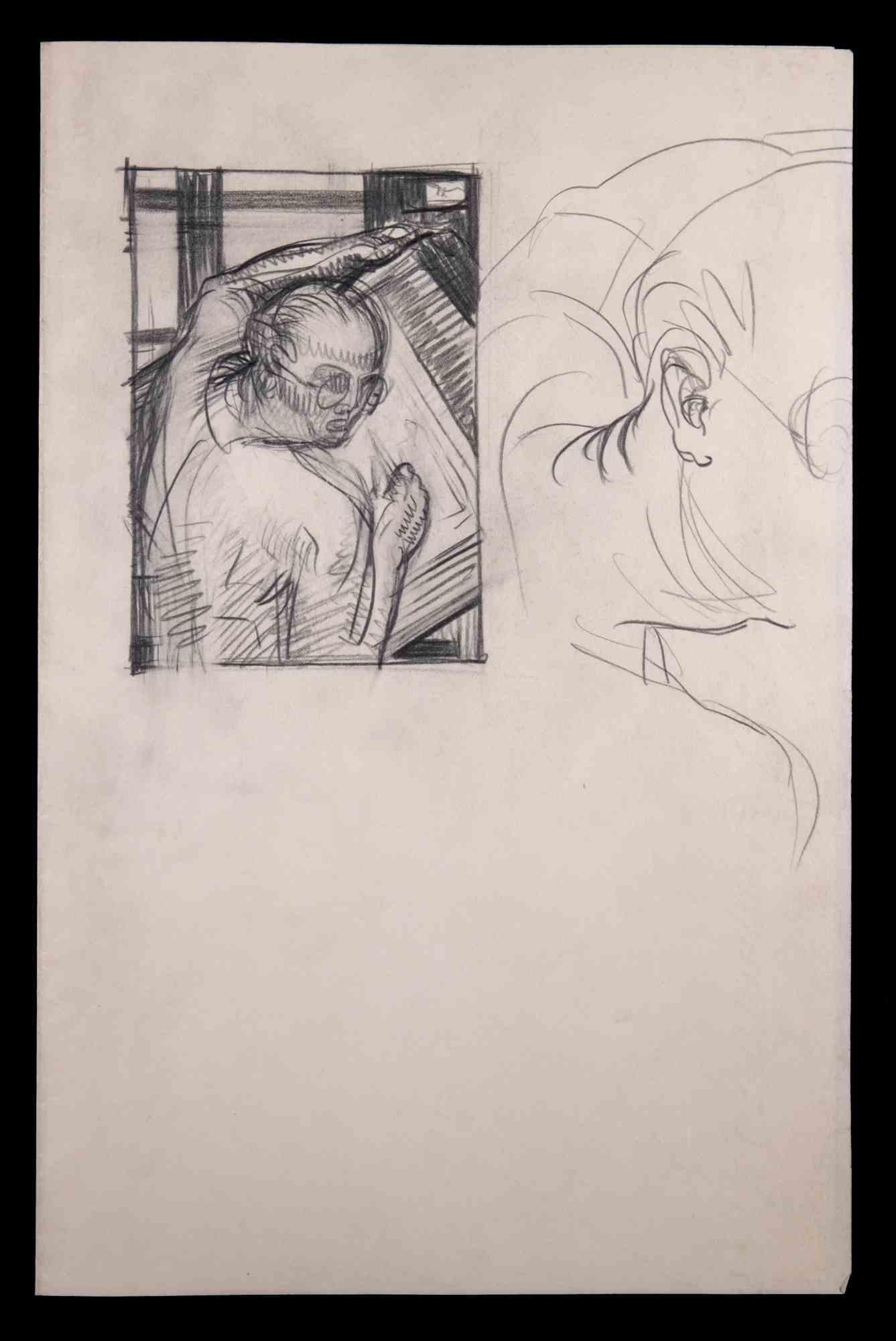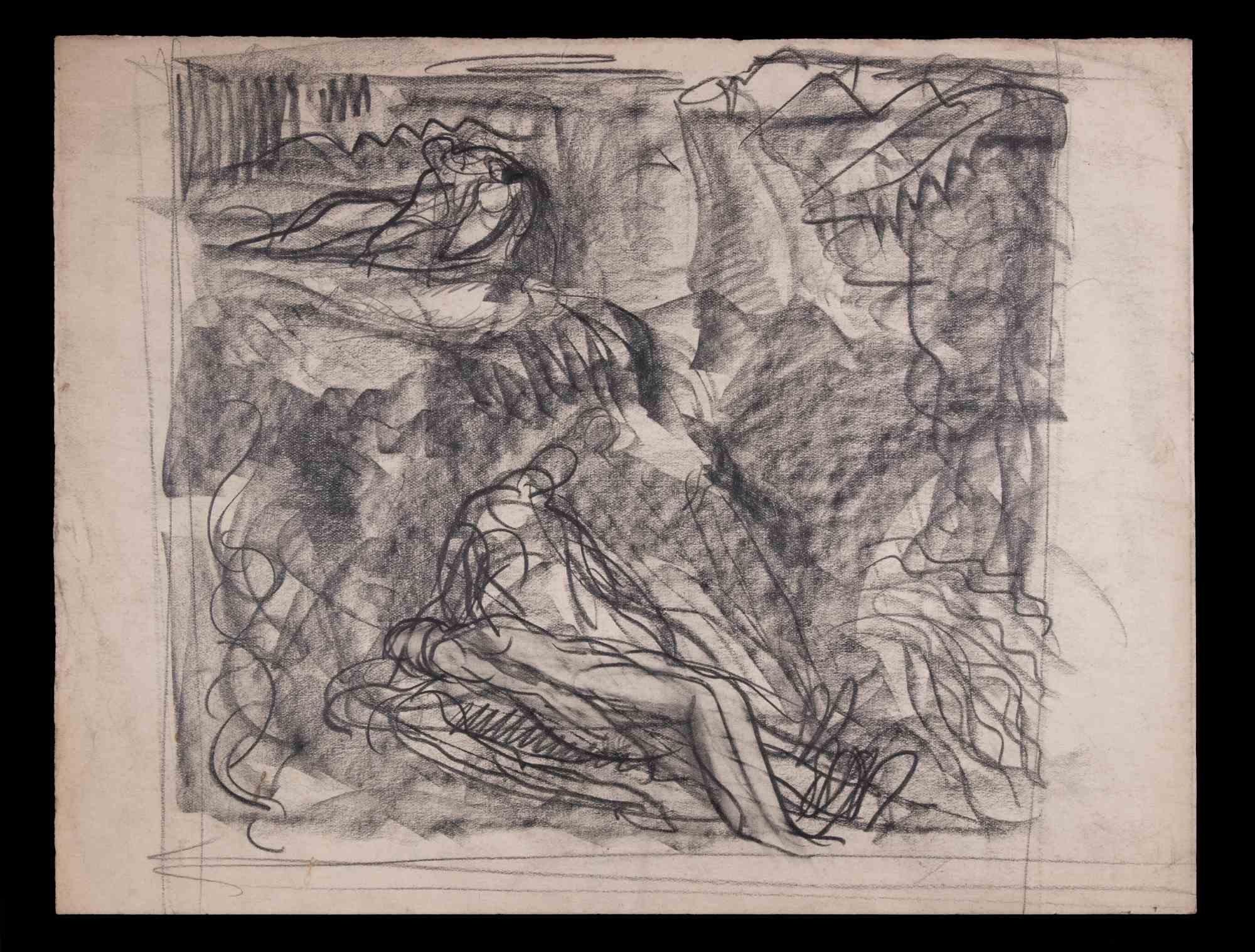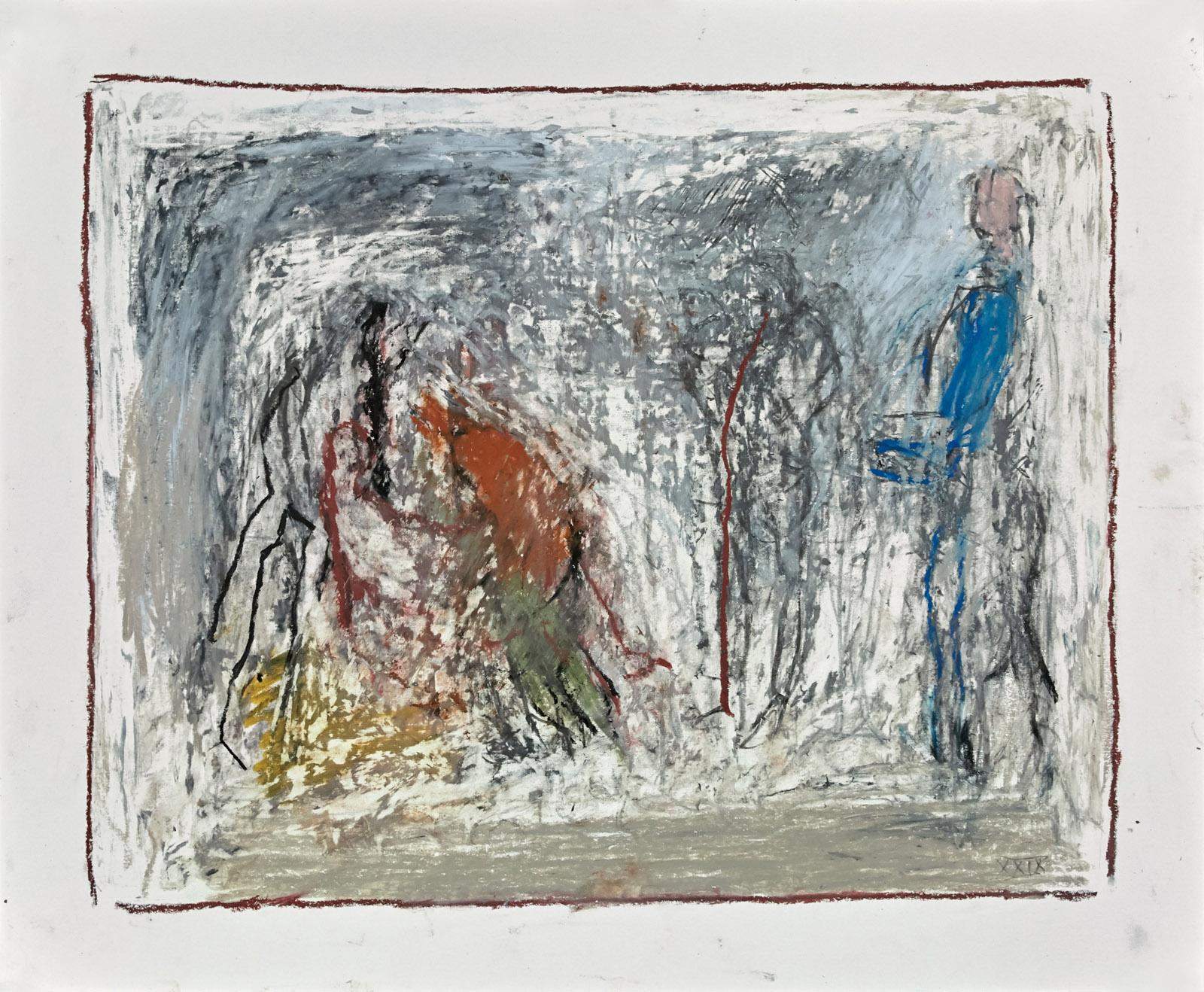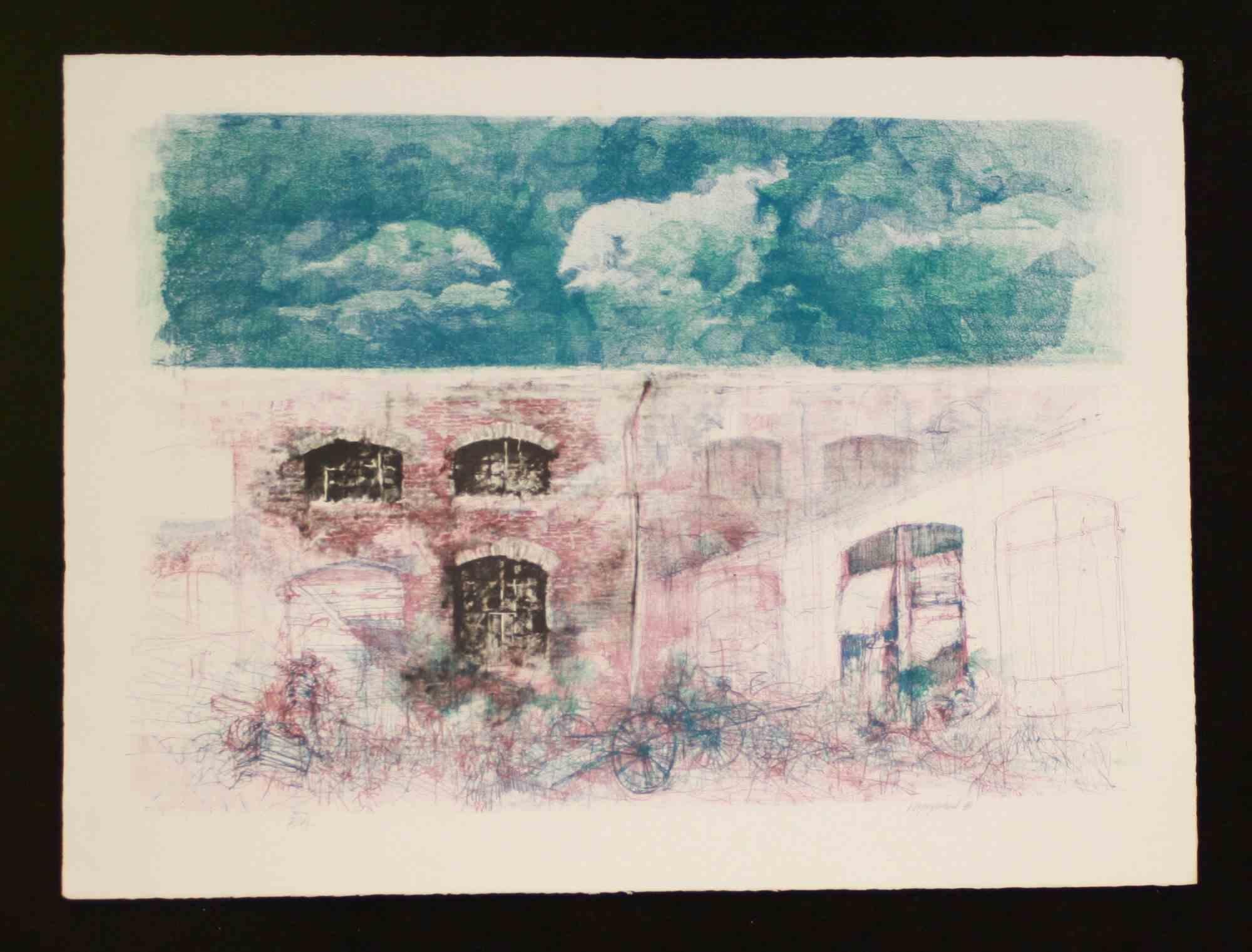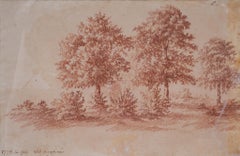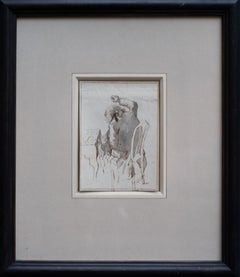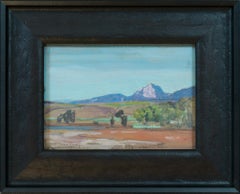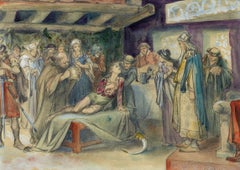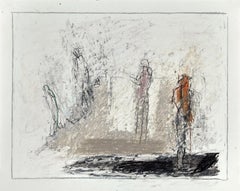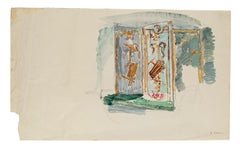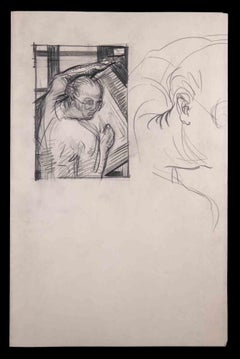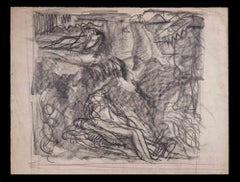Items Similar to Eleven drawings of various subjects mounted on a printed sheet
Want more images or videos?
Request additional images or videos from the seller
1 of 8
CARL SAMUEL GRAFFMANEleven drawings of various subjects mounted on a printed sheet1841-1842
1841-1842
$4,190.49
£3,117.68
€3,500
CA$5,838.20
A$6,354.18
CHF 3,335.89
MX$76,767.76
NOK 41,869.06
SEK 39,477.58
DKK 26,649.73
About the Item
Drawn at Danviken Hospital between 1841 and 1842.
Swedish art of the late 19th and early 20th centuries would appear significantly diminished if the works of artists who struggled with mental illness were excluded. Without making distinctions between “ill” and “healthy,” it can be said that artists such as C.F. Hill and Ernst Josephson produced works during their illnesses that are regarded as indispensable. To this group can be added two relatively unknown artists outside academic circles: Johan Fredrik Hörling (1718–1786) and Carl Samuel Graffman. Both suffered from mental illness early in their lives, which explains the relatively limited number of works created during their mentally stable periods.
Pivotal to the understanding of Graffman as an artist is Gunnar Jungmarker’s article, Carl Samuel Graffman and His Disease Drawings, published in Nationalmusei årsbok in 1935. In 1966, Karin Melander wrote an unpublished dissertation titled Carl Samuel Graffman: A Forgotten 19th-Century Artist. In 1995, Professor Sten-Åke Nilsson published an article about Graffman in Artes titled Drawn After Nature: Carl Samuel Graffman. Graffman’s art, however, only gained public recognition in 2005, when Nilsson published the first comprehensive monograph on him, Fragment of a Life: A Biography of the Landscape Painter Carl Samuel Graffman. This was followed the same year by an exhibition at Prins Eugens Waldemarsudde. In 2008, Nilsson further explored Graffman’s life in an article for Biblis titled The Eagle in a Cage, where he presented newly discovered documents about Graffman’s life.
Carl Samuel Graffman began his career as a Romantic landscape painter and graphic artist. During his time at the Royal Swedish Academy of Fine Arts, he was a student of Professor Carl Johan Fahlcrantz, Sweden's leading landscape painter at the time. Fahlcrantz regarded Graffman as his most talented student. In the summer and autumn of 1830, Graffman traveled to Scotland, which at the time was celebrated as the romantic land of Ossian and Sir Walter Scott. Graffman visited Scott at his home in Abbotsford, likely through Fahlcrantz’s recommendation. Guided by Scott’s advice, Graffman traveled extensively across Scotland, visiting historical and scenic sites. He was particularly captivated by the wild landscapes of the Highlands. This journey inspired Skottska Vuer (Scottish Views), a series of lithographs by Carl Johan Billmark based on Graffman’s sketches, accompanied by text from Thure Vensjö and published in 1833. The work became widely popular and solidified Graffman’s reputation. He also produced oil paintings based on his Scottish sketches, which were exhibited at the Royal Academy of Fine Arts. Several of these were purchased by King Karl XIV Johan and are now housed at Rosendal Castle in Stockholm.
In 1834, Graffman received a three-year travel grant to study in France. However, towards the end of his stay, in 1836, he experienced a severe mental breakdown and was admitted to Charenton Mental Hospital near Paris for a year. After his recovery, he returned to Sweden in 1837, arriving in Stockholm during a politically volatile period.
In 1838, tensions peaked during the Crusenstolpe Affair, which sparked riots and unrest in Stockholm. Graffman, displaying a growing interest in political discourse, became embroiled in these turbulent events. At a breakfast gathering in Castenhoff’s cellar, he reportedly expressed anti-Russian sentiments and brandished pistols, declaring his intent to assassinate the visiting Russian emperor. This outburst led to his arrest, during which he fell into a state of extreme rage and was subsequently committed to Danviken Mental Hospital in July 1838.
During his confinement at Danviken, Graffman resumed artistic activity for a brief period between 1841 and 1842. Approximately 200 of his drawings survive from this time, the majority now housed in museum collections. These works consist largely of landscape motifs, portraits of fellow patients and staff, and imaginative depictions inspired by his memories. Many drawings were created on scraps of paper, letter fragments, or repurposed book pages. Most are executed in miniature format, with some small enough to fit as many as twenty pieces on a single folio sheet. However, Graffman also produced more elaborate studies of trees on larger paper. His landscapes, often based on the views from the windows of Danviken, range from realistic depictions to imagined rural scenes with dramatic mountains, forests, and rapids. These works, infused with a brooding darkness, anticipate Marcus Larsson’s atmospheric depictions of nature from the 1850s.
After 23 years at Danviken, Graffman was transferred to the newly established Konradsberg Hospital in 1861. He died there the following year, leaving behind a body of work that reflects his isolation, imagination, and resilience. Graffman’s drawings from Danviken stand out as deeply personal and original contributions to Swedish art history, transcending conventional frameworks and providing a poignant insight into his life and struggles.
Signed lower right "Originalarbete af C. Graffman" (Original work by C. Graffman)
Eleven drawings of various subjects pasted on a printed sheet
Various techniques and sizes
Sheet size: 200 x 357 mm
Literature:
S.-Å. Nilsson, Fragment av ett liv. En biografi över landskapsmålaren Carl Samuel Graffman, p. 101, illustrated in full color
Exhibited:
Stockholm, Prins Eugens Waldemarsudde, Carl Samuel Graffman, March 3–May 28, 2006
- Creator:CARL SAMUEL GRAFFMAN (1801 - 1862, Swedish)
- Creation Year:1841-1842
- Dimensions:Height: 7.88 in (20 cm)Width: 14.18 in (36 cm)
- Medium:
- Period:
- Condition:Very good condition, ready to hang.
- Gallery Location:Stockholm, SE
- Reference Number:1stDibs: LU1445215598592
About the Seller
5.0
Platinum Seller
Premium sellers with a 4.7+ rating and 24-hour response times
Established in 2020
1stDibs seller since 2020
200 sales on 1stDibs
Typical response time: <1 hour
Associations
International Confederation of Art and Antique Dealers' Associations
- ShippingRetrieving quote...Shipping from: Stockholm, Sweden
- Return Policy
Authenticity Guarantee
In the unlikely event there’s an issue with an item’s authenticity, contact us within 1 year for a full refund. DetailsMoney-Back Guarantee
If your item is not as described, is damaged in transit, or does not arrive, contact us within 7 days for a full refund. Details24-Hour Cancellation
You have a 24-hour grace period in which to reconsider your purchase, with no questions asked.Vetted Professional Sellers
Our world-class sellers must adhere to strict standards for service and quality, maintaining the integrity of our listings.Price-Match Guarantee
If you find that a seller listed the same item for a lower price elsewhere, we’ll match it.Trusted Global Delivery
Our best-in-class carrier network provides specialized shipping options worldwide, including custom delivery.More From This Seller
View AllDrawing from Hagbynäs Sweden, 1779
Located in Stockholm, SE
Jonas Carl Linnerhielm (1758–1829)
Hagbynäs
Dated and titled “1779 in Aug. Vid Hagbynäs”
Red chalk on paper
21.3 × 33.4 cm (8.4 × 13.1 in.)
with frame 40.5 x 51 cm (15 ⁷/⁸ x 20 ⅛ i...
Category
1770s Romantic Landscape Drawings and Watercolors
Materials
Paper, Chalk
A Tailor Working at his Desk
Located in Stockholm, SE
Gerhard Ludwig Lahde (Bremen 1765–1833 Köpenhamn)
A Tailor Working at his Desk
Ink and wash on paper, mounted on a 19th-century backing inscribed “G. L. Lahde del.”
unframed: 14.2 ...
Category
Early 19th Century Figurative Drawings and Watercolors
Materials
Ink
Blue Mountains, New Mexico
By Carl Oscar Borg
Located in Stockholm, SE
In this luminous landscape study, Carl Oscar Borg captures the serene beauty of the New Mexican high desert, likely looking toward Mount Taylor, a sacred peak that rises above the su...
Category
Early 20th Century Romantic Landscape Drawings and Watercolors
Materials
Gouache
$1,800 Sale Price
25% Off
The Wounded Man by Caleb Althin, Mixed Media on Paper, Signed
By Caleb Althin
Located in Stockholm, SE
Caleb Althin (1866-1919) Sweden
The Wounded Man
Caleb Althin studied at the Academy of Fine Arts in Stockholm 1885–1894 with a few years break for studies abroad in decorative pai...
Category
Early 20th Century Interior Drawings and Watercolors
Materials
Mixed Media, Watercolor, Pencil
$1,051 Sale Price
34% Off
Portrait of a Man from the Rif Region
Located in Stockholm, SE
This watercolour portrait by Finnish artist Hugo Backmansson depicts an Arab man from the Rif region of Morocco. Created during Backmansson’s journey to Morocco in 1939, the work cap...
Category
1930s Portrait Drawings and Watercolors
Materials
Paper, Watercolor
$3,352 Sale Price
20% Off
A Northern Vision in Miniature
Located in Stockholm, SE
This exquisitely detailed drawing by Swedish artist Oscar Lycke captures a rustic settlement nestled in the golden highlands of northern Sweden, most likely depicting the traditional...
Category
1910s Impressionist Mixed Media
Materials
Paper, Crayon, Watercolor, Pencil
You May Also Like
Drawings from Mt Gretna, III
Located in Atlanta, GA
"My work principally consists of deeply abstracted figure compositions--intuitive constructions that begin with random marks establishing larger masses of torsos, heads, and limbs in an undefined setting. The emphasis is almost purely on intuition. The figures are born of their surrounding environment, emerging only partially and fugitively from the layers of pigment.
A narrative is evident but never overt. A crown, a shield, a boat, a wheel. Though the subject has recently coalesced around my reading of Dante and Shakespeare, the settings remain extremely vague- a beach, an interior, a woodland. The paintings are, in the end, meditations on the relationship between the protagonists in a wordless drama. In my paintings, I use a cold wax medium...
Category
2010s Contemporary Figurative Drawings and Watercolors
Materials
Oil Crayon, Mixed Media, Handmade Paper, Graphite
Paravent - Mixed Media on Paper - 20th Century
Located in Roma, IT
Paravent is a drawing mixed media on paper realized by an Anonymous artist of the XX century.
The State of preservation is very good except for folding and a cutaway on the lower r...
Category
20th Century Figurative Drawings and Watercolors
Materials
Pastel, Pencil
Sketches of an Artist - Original Drawing by Unknown - Mid 20th Century
Located in Roma, IT
Sketches of an Artist is an Original Pencil Drawing realized by an Unknown artist in mid-20th Century.
Good condition on a yellowed paper.
No signature.
Category
Mid-20th Century Modern Figurative Drawings and Watercolors
Materials
Pencil
Composition - Original Drawing by Madeleine Scali - Late 20th Century
By Madeleine Scali
Located in Roma, IT
Composition is an original pencil drawing realized by Madeleine Scali.
The artwork is in very good condition.
No signature.
Madeleine Scali (1911-2000) was a French artist.
Category
Late 20th Century Modern Figurative Drawings and Watercolors
Materials
Pencil
Drawings from Mt Gretna XXIX
Located in Atlanta, GA
"My work principally consists of deeply abstracted figure compositions--intuitive constructions that begin with random marks establishing larger masses of torsos, heads, and limbs in an undefined setting. The emphasis is almost purely on intuition. The figures are born of their surrounding environment, emerging only partially and fugitively from the layers of pigment.
A narrative is evident but never overt. A crown, a shield, a boat, a wheel. Though the subject has recently coalesced around my reading of Dante and Shakespeare, the settings remain extremely vague- a beach, an interior, a woodland. The paintings are, in the end, meditations on the relationship between the protagonists in a wordless drama. In my paintings, I use a cold wax medium combined with dry pigments, oil paint, and embedded fragments of burlap. The surfaces eventually build up into a dense, rugged terrain."
--Thaddeus Radell
Category
2010s Contemporary Figurative Drawings and Watercolors
Materials
Oil Crayon, Mixed Media, Handmade Paper, Graphite
Untitled - Lithograph by Renzo Vespignani - 1990
By Renzo Vespignani
Located in Roma, IT
Lithograph on Magnani-Pescia paper 310 gr/m2, paper size 80cm x 60cm, 62cmx 50cm . Excellent condition, no defects.
Work number P.A. ; Artist signature and date ‘90
Renzo Vespignani...
Category
1990s Modern Figurative Prints
Materials
Lithograph
More Ways To Browse
Antique Hospital
19th Century Scottish Watercolor Artists
19th Century Oil Paintings Swedish
Antique Pistols
Scottish Lithograph
George Frederic Watts
Gordon Phillips
Jean Effel
Man With Violin
Miniature Saddle
Mordi Gassner
Paris Watercolor Cafe
Watercolor Signed T
Winslow Homer Watercolors
18th Century Dutch Watercolors
Arthur Pina De Alba
Arturo Nieto
Dancer Figure Drawing
